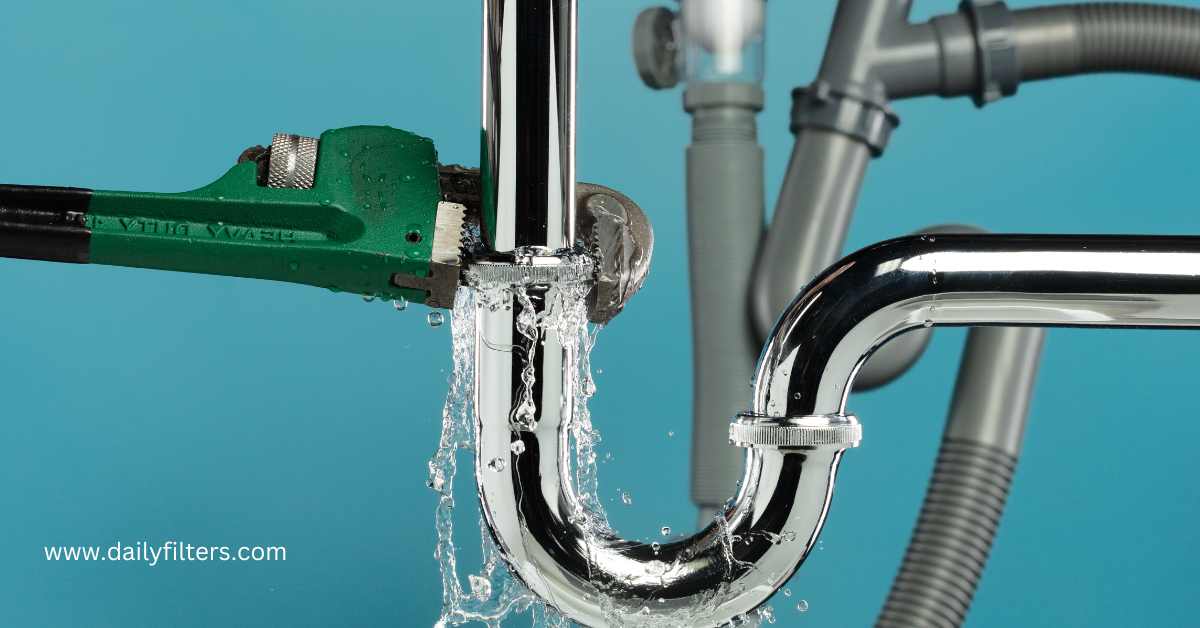Are you experiencing water leakage from your water softener’s drain line? It might seem minor, but it can lead to more significant problems if not addressed. A leaking drain line not only wastes gallons of water but also causes damage to your property.
In this blog post, we’ll explore why your water softener leaks from the drain line and provide solutions for fixing the issue. Keep reading to learn how to save money on repairs and avoid potential hazards in your home!
Understanding Water Softeners and Drain Lines
A water softener is a device that removes hard minerals from your home’s water supply, such as calcium and magnesium. These minerals can cause limescale buildup in pipes, appliances, and other surfaces. Water softeners use ion exchange to trade these hard minerals for sodium or potassium ions.
The drain line of a water softener is responsible for removing excess wastewater during the regeneration process, where the resin beads inside the tank are cleaned with salt water. This process recharges the resin beads to remove hard minerals from the incoming water.
Drain lines typically exit through an air gap or run into a floor drain in basements or utility rooms. If you notice any leaks around this area, it could indicate damage to your drain line or improper installation.
Understanding how your water softener works and its components will help you troubleshoot potential problems like leaks from the drain line. Please keep reading to learn more about why your water softener might be leaking from the drain line and how to fix it!
Why is My Water Softener Leaking From the Drain Line
There could be various reasons why your water softener leaks from the drain line.
One common sense is if there’s a clog or blockage in the drain line itself. Over time, minerals can build up inside the pipe and cause a blockage, resulting in leaks.
Another possible reason could be faulty installation or loose connections throughout your plumbing system, leading to leaks at different points, such as valves or pipes.
Troubleshooting and Solutions for Drain Line Leaks
If you are experiencing a leak from your water softener drain line, don’t panic. Here are some troubleshooting steps and solutions to help you resolve the issue:
Check if there is an obstruction in the drain line. Sometimes debris can accumulate and cause a blockage, which results in a leak. Clear out obstructions using a plumbing snake or flushing the drain with hot water.
Ensure that the drain line is properly connected to the water softener unit. If it has become loose over time due to movement or vibration of the unit, tighten all connections securely.

Inspect for cracks or damage on the drain line itself, which could be causing leaks. If found damaged, replace it with new tubing.
Another possible culprit for leaking may be excess pressure building up within your system. Check and adjust your regulator valve accordingly to prevent future issues.
Consider installing an air gap into your drainage system, as this will provide added protection against backflow contamination from sewage backups while preventing any leaks from occurring in the future.
By following these simple steps, you should be able to resolve most issues related to water softener drain line leaks without having to call professional services for assistance!
When to Seek Professional Help
Regarding water softener leaks, some issues may require professional help. While there are essential solutions you can try on your own, more complicated problems may be beyond your expertise or require specialized tools and equipment.

If you have tried troubleshooting the issue with no success, it’s time to consider calling a professional for assistance. This is especially important if you notice any damage or corrosion in the drain line or other parts of the water softener system.
Another reason to seek professional help is if your water softener is still under warranty. Attempting repairs yourself could void any contracts that are still valid.
Hiring a licensed and experienced plumber or technician can ensure the problem is accurately diagnosed and fixed. In addition, they can provide advice on how to prevent future leaks and extend the lifespan of your water softener system.
In the long run, seeking professional help when dealing with complex plumbing issues such as drain line leaks can save you time, money, and headaches.
Conclusion
To sum up, a leaking drain line is a common issue that water softener owners face. However, it’s essential to understand the root cause of the problem before trying any DIY solutions. Sometimes, simple fixes like cleaning or replacing components solve the issue. But if you’re not confident in your abilities or suspect a more severe problem, don’t hesitate to seek professional help.
By following these troubleshooting steps and taking care of your water softener system with regular maintenance, you can prevent leaks and ensure that your home has high-quality, softened water for years. Remember, prevention is always better than dealing with costly repairs down the line!

